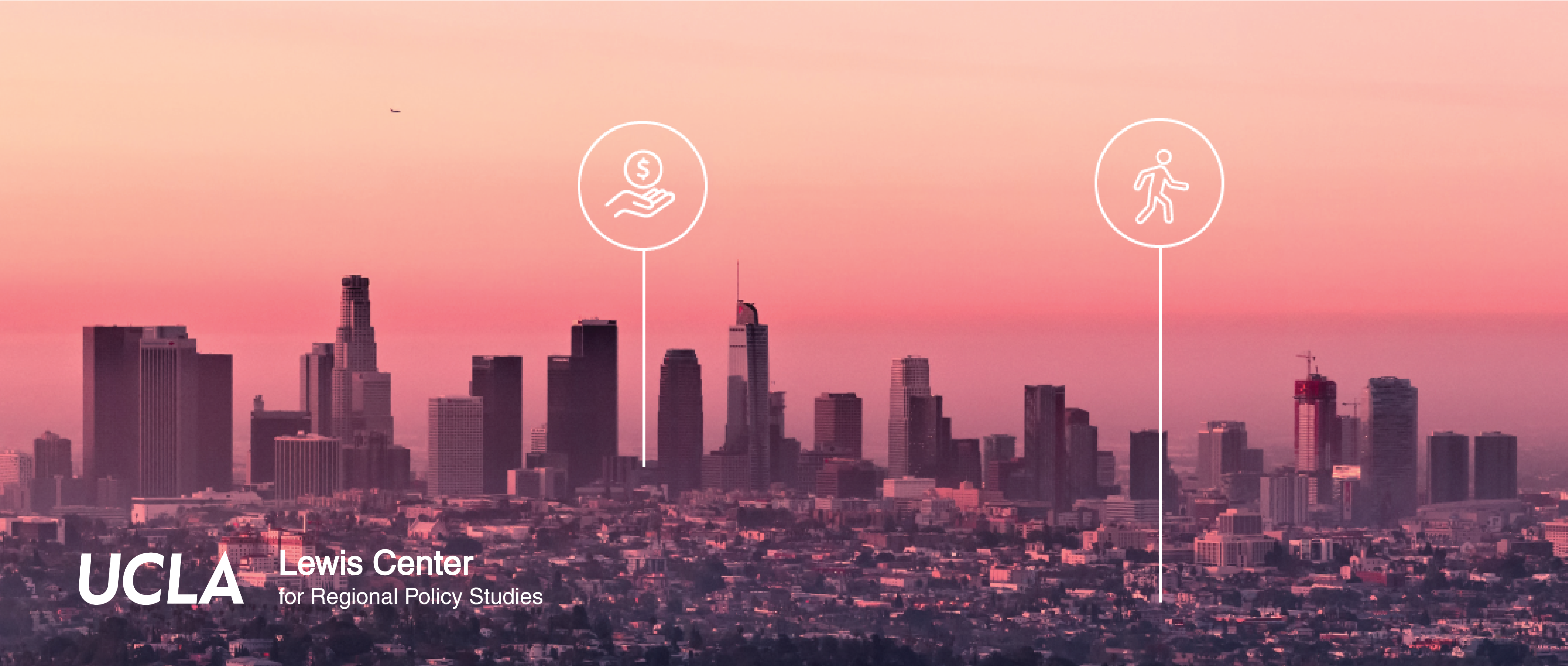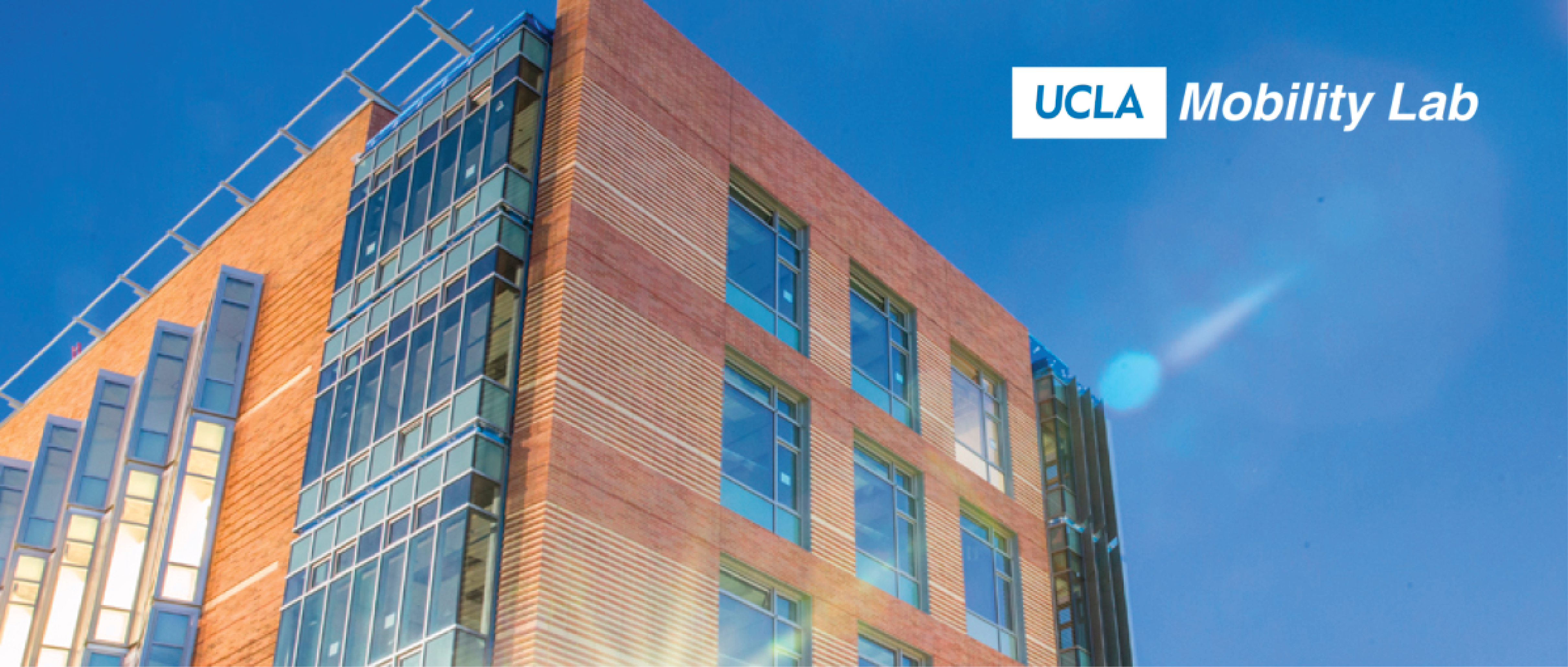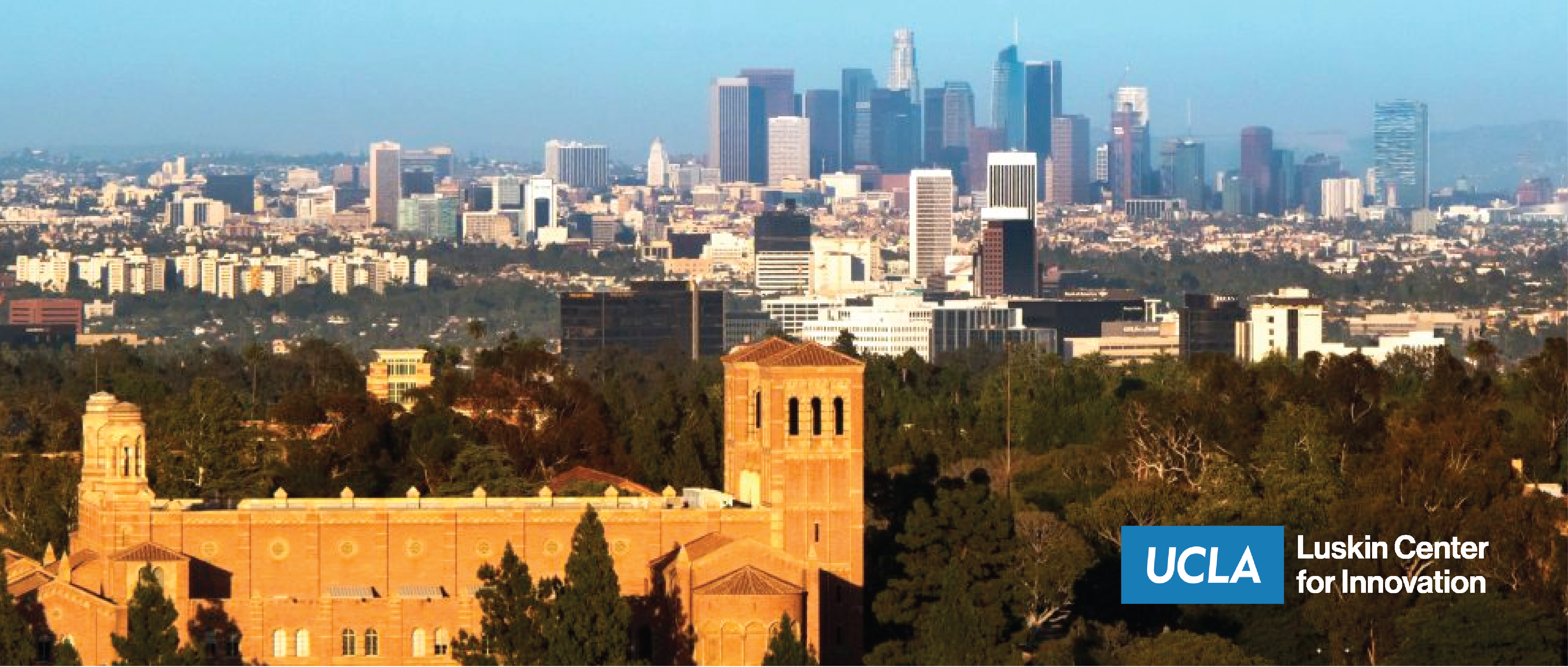Affiliated Centers
The UCLA Institute of Transportation Studies collaborates regularly with research centers across the UCLA campus.
Lewis Center for Regional Policy Studies
Los Angeles is the center of one of the largest and most economically powerful regions in the world. But it also has some of the country’s highest levels of income inequality, driven by surging housing costs, residential segregation, stagnant wages, and gaps in access to high-quality transportation and education. Los Angeles is a challenging and complicated place, especially for low-income residents and communities that face multiple barriers to economic opportunity. The Ralph & Goldy Lewis Center for Regional Policy Studies advances research on how people live, move, and work in the Los Angeles region, with a focus on policies and interventions that provide paths out of poverty.
The Lewis Center’s transportation research areas include:
- Transportation equity
- Access to opportunities
- Environmental justice
Center of Excellence on New Mobility and Automated Vehicles
The Center of Excellence on New Mobility and Automated Vehicles (Mobility COE) was established by the Infrastructure Investment and Jobs Act to “collect, conduct, and fund research on the impacts of new mobility and highly automated vehicles on land use, urban design, transportation, real estate, equity, and municipal budgets.” The Federal Highway Administration (FHWA) awarded the Mobility COE to the University of California, Los Angeles (UCLA) and its research partners in fall 2023 and charged it with establishing a five-year research agenda to serve as a strategic roadmap that guides research initiatives and projects in the dynamic and ever-evolving field of new mobility.
The Mobility COE operates under three major research thrusts:
- Systems analysis and optimization
- Mobility, land use, and urban planning
- Human-centric mobility and society
Sustainable LA Grand Challenge
The Sustainable LA Grand Challenge team supports an interdisciplinary network of over 250 scholars and researchers at UCLA in their efforts to apply universitywide resources and attention toward the advancement of ambitious sustainability goals in Los Angeles. The initiative connects UCLA faculty, students, and staff to funding opportunities and external partners and supports research development in the broad area of urban sustainability.
The Sustainable LA Grand Challenge transportation research area features:
- TRACtion (Transformative Research and Collaboration): Transportation
UCLA Mobility Lab
The UCLA Mobility Lab uses artificial intelligence, machine learning, robotics, and other tools to develop innovative solutions to issues and challenges in the mobility system. The Lab has worked closely with DOTs at the federal and state level, other public and private agencies, and university partners to produce practical outputs. Current projects primarily center on developing technologies and analytics for smart cities and smart transportation infrastructure, vehicle electrification, and vehicle automation.
The Mobility Lab’s transportation research areas include:
- Automated driving and traffic simulations
- Drone integration with autonomous vehicles
- Driver behavior models
- Transportation electrification and smart cities
Luskin Center for Innovation
The Luskin Center for Innovation conducts rigorous research and timely outreach that informs environmental policies for the health of people and the planet. The center evaluates existing and proposed environmental policies to assess their effectiveness, equity impacts, and potential to spur innovation. Research findings are then shared with community leaders and policymakers, who use the Luskin Center’s research to design evidence-based environmental policies. Research programs include climate, energy, environmental equity, transportation, urban greening, and water – all linked by the theme of informing effective and equitable solutions to the environmental challenges of our time.
The Luskin Center’s transportation program area includes:
- Clean vehicle policy
- Electric vehicle planning
- Clean mobility for low-income households
- Sustainable fleets & new mobility
- Complete and living streets
Smart Grid Energy Research Center
The Smart Grid Energy Research Center (SMERC) performs research, creates innovations, and, demonstrates advanced wireless/communications, Internet and sense-and-control technologies to enable the development of the next generation of the electric utility grid – The Smart Grid. SMERC also provides thought leadership via partnerships between utilities, government, policymakers, technology providers, electric vehicle and electric appliance manufacturers, Department of Energy research labs and universities, so as to collectively work on envisioning, planning, and executing the smart grid of the future. The smart grid of the future will allow for integration of renewable energy sources, and will reduce losses, improve efficiencies, increase grid flexibility, reduce power outages, allow for competitive electricity pricing, allow for integration of electric vehicles, and overall become more responsive to market, consumer and societal needs. SMERC is currently working on the topics of Electric Vehicle Integration, Automated Demand Response, Microgrids, and Distributed and Renewable Integration, and Energy Storage Integration.
SMERC’s transportation-related work includes:
- Automated demand-response
- Electric vehicle integration
- Connected autonomous electric vehicles
The B. John Garrick Institute for the Risk Sciences
The B. John Garrick Institute for the Risk Sciences aims to quantify natural and/or anthropogenic risks to society, human health and the environment to prevent, predict and mitigate their consequences. With a better understanding of risks, systems design, emergency response strategies, and resilience planning can all be improved. The interdisciplinary Institute collaborates with research centers at UCLA and other universities, federal agencies, and industry partners on a wide variety of projects, from wildfire risk assessment to building safe autonomous systems.
The Garrick Institute’s transportation research areas include:
- Clean energy transition
- Autonomous driving systems
- Transportation system resilience
- Evacuation from environmental hazards








